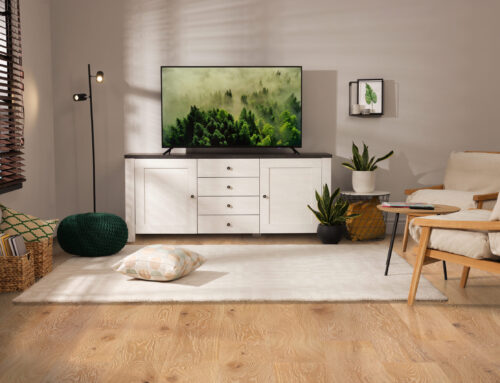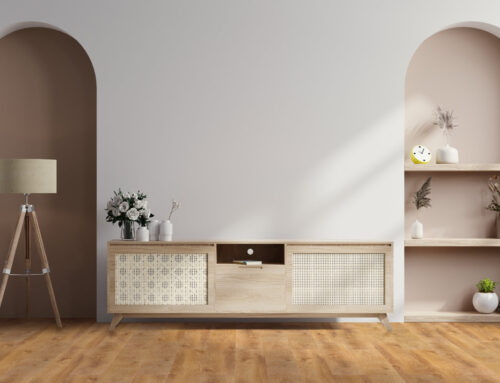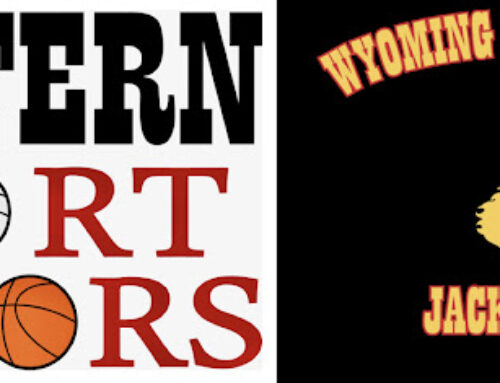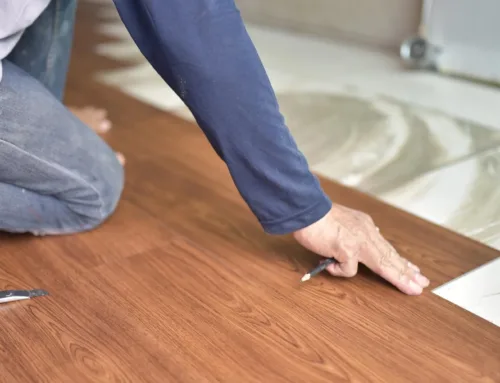Choosing the perfect & right flooring for your home or commercial space can be a daunting task. With so many options available and varying information, it can be a mind-numbing experience. However, this article aims to simplify the process by providing a comprehensive overview of the different types of flooring available. We will discuss the pros and cons of each type and assist you in making an informed decision for your space.
What are the different types of flooring?
When it comes to the right flooring, there are many options to choose from. For the purposes of this article, we will focus on the offerings of Rustic Wood Floor Supply in Boise and Spokane. Their flooring options are straightforward and easy to understand, allowing you to compare and decide what works best for you. Here are the types of flooring that Rustic Wood Floor Supply offers:
- Solid hardwood
- Solid prefinished
- Engineered unfinished
- Engineered prefinished
- Luxury vinyl
- Laminate
Solid Hardwood Flooring:
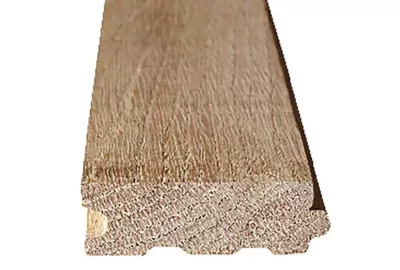
Solid hardwood flooring is typically 3/4″ thick and made from common species like red oak, white oak, hickory, maple, birch, or walnut. While there are hundreds of other species available, these six options account for approximately 99% of all solid hardwood flooring sold in America. Unlike other types of flooring, solid hardwood floors do not have bevels and feature natural grains, providing a unique and authentic look.
Solid hardwood flooring is highly versatile and allows for a range of customization options. If you end up disliking the appearance, texture, or sheen of your floor in a few years, you can sand and refinish it to achieve a new look.
Pro’s:
- Durability: Solid hardwood flooring is extremely durable and can last for decades if properly maintained. They can also be redone/refinished with new stain, sealer, and finish.
- Aesthetics: Hardwood floors provide a warm, natural, and timeless look that can complement any interior design style.
- Value: Hardwood floors can add value to your home and are considered a desirable feature by potential buyers.
- Versatility: Hardwood floors come in a wide range of wood species, colors, and textures, allowing you to choose the perfect option for your space.
- Easy to clean: Hardwood floors are easy to clean and maintain with regular sweeping and occasional mopping.
- Can be refinished: Unlike other flooring options, solid hardwood flooring can be sanded and refinished to restore its original beauty if it becomes scratched or damaged.
- Good for indoor air quality: Hardwood floors do not trap dust, pollen, and other allergens like carpets, making them a good option for those with allergies or respiratory issues.
Con’s
- Cost: Solid hardwood flooring can be expensive compared to other types of flooring options, such as laminate or vinyl. However, you get what you pay for is very real in flooring.
- Prone to scratches and dents: Solid hardwood flooring is vulnerable to scratches and dents, especially from high heels, furniture, and pet claws. While true, this is also true for other forms of hardwood flooring.
- Susceptible to water damage: Solid hardwood flooring is not waterproof and can be damaged by water or excessive moisture.
- Expansion and contraction: Solid hardwood flooring can expand and contract with changes in humidity and temperature, leading to gaps or buckling. Typical houses might go through a season of gapping, but a normal well insulated house with proper HVAC will have minimal problems.
- Professional installation required: Installing solid hardwood flooring requires specialized tools and skills, and is generally not suitable for DIY projects.
- Limited installation options: Solid hardwood flooring cannot be installed below grade or in areas with high moisture levels, limiting its installation options. We highly recommend using plastic flooring for below grade.
Solid Prefinished Flooring
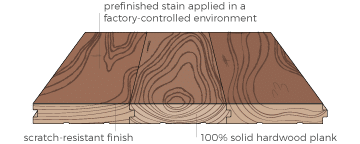
Solid prefinished flooring is similar to solid unfinished flooring, but it has been pre-finished on the factory floor with a stain and finish. This option is ideal for DIY enthusiasts or homeowners who lack the tools and expertise to finish their own floors. Prefinished solid floors are also convenient when a quick installation is required and there is no time for dust or mess. However, there are some downsides to prefinished solid flooring.
One drawback is that prefinished solid flooring has a bevel, which can slightly decrease the floor’s lifespan, as you lose 1-2 resands compared to solid hardwood flooring. Additionally, prefinished solid flooring is typically only available in limited widths, such as 2.25″, 3.25″, 4″, 4.25″, and 5″.
Here are some pros and cons of solid prefinished flooring:
Pros:
- Convenient and time-saving, as no finishing work is required after installation
- Less messy than on-site finishing, as there is no dust or strong odors
- Offers a wide range of colors and finishes to choose from
- Easier to install for DIY enthusiasts and homeowners without professional tools and experience
Cons:
- Higher cost compared to solid unfinished flooring
- Limited width options available
- Beveled edges can decrease the lifespan of the floor
- Difficult to repair or refinish, as the pre-finish layer must be removed first
Engineered Unfinished Flooring
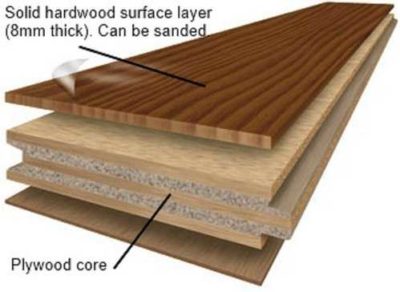
Engineered unfinished flooring is a distinctive product that combines the stability of engineered wood with the ability to be customized on-site. It is similar to prefinished engineered flooring but typically has a thicker wear layer and lacks any distressing. This makes it an ideal choice for those who want the look and feel of natural wood but prefer the flexibility of on-site finishing.
Another advantage of engineered unfinished flooring is that it can be used in any part of a house or building, including areas with high humidity or temperature fluctuations. It is also more stable than solid wood, which can expand or contract with changes in temperature and moisture.
However, the main drawback of this option is the cost, which is typically higher than that of solid wood due to the additional manufacturing required to produce this type of flooring. Additionally, on-site finishing can be time-consuming and may require professional expertise to achieve the desired results.
Here are some pros and cons of engineered unfinished flooring:
Pros:
- Offers the look and feel of natural wood with the flexibility of on-site finishing
- Can be used in any part of a house or building, including high-moisture areas
- More stable than solid wood
- Provides a thicker wear layer than prefinished engineered flooring
Cons:
- Higher cost compared to solid wood flooring
- On-site finishing can be time-consuming and requires professional expertise
- Limited options in terms of distressing and surface texture compared to prefinished engineered flooring.
Engineered Prefinished Flooring
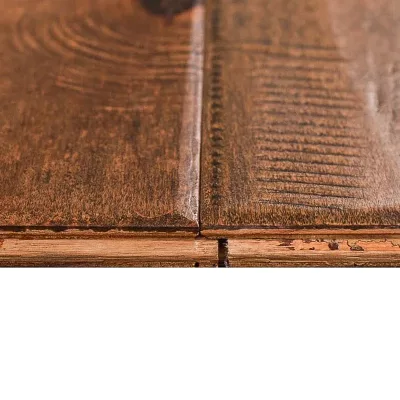
Prefinished engineered flooring is a common type of hardwood flooring found in various retail outlets, including big-box stores and strip mall flooring shops. Although typically less expensive, it can still be of high quality and come with a higher price tag. This flooring type consists of several layers of wood, adhesive, and other additives. The top wear layer is usually 2-4mm thick and cannot be sanded down.
The main advantage of engineered hardwood flooring is the wide range of color options available to fit your design style or preferences. Designers and architects often appreciate this type of flooring for its color choices, which can be selected with minimal concerns. However, it is worth noting that engineered flooring is of lower quality than solid wood options. Additionally, it is not the most environmentally-friendly choice for flooring.
Here are some pros and cons of engineered Prefinished flooring:
Pros:
- A wide range of color options and styles are available, making it easier to match your home’s decor
- Often less expensive than solid wood flooring, making it a more affordable option
- Can be installed in areas with higher humidity or moisture, such as basements, due to its construction
- Quick and easy to install with minimal preparation work needed
- A prefinished surface means no sanding, staining or sealing required after installation
- Often made from more sustainable materials than solid wood flooring options
Cons:
- Lower quality than solid wood flooring, with a shorter lifespan
- Cannot be sanded and refinished like solid wood flooring, limiting its lifespan
- The top wear layer is relatively thin and can be prone to scratches and dents
- May contain harmful chemicals, including formaldehyde, which can impact indoor air quality
- Not as visually appealing as solid wood flooring, with a less natural look and feel
- Typically not as eco-friendly as other types of flooring, as it often involves the use of adhesives and chemicals in its production
Luxury Vinyl Plank (LVP) Flooring

spc luxury vinyl flooring side view
Luxury vinyl plank is a flooring alternative that mimics the look of wood but is made from materials such as limestone, PVC, and other additives. The process of making LVP flooring makes it a great option for almost any space. Although not directly competing with wood flooring, it has gained popularity over the years. Rustic Wood Floor Supply has its own line of luxury vinyl flooring called Cordalera.
One significant advantage of luxury vinyl flooring, especially if it is SPC luxury vinyl, is that it has minimal movement. Additionally, the colors are created using computer technology, providing a broad range of variations. Luxury vinyl is waterproof, which eliminates the gapping and other issues that can arise with wood flooring.
Here are some pros and cons of engineered Prefinished flooring:
Pros:
- Cost-effective: Luxury vinyl flooring can be a more affordable option than hardwood, ceramic, or other hard surface flooring options.
- Waterproof: Many luxury vinyl products are waterproof, making them an excellent choice for areas prone to moisture and spills.
- Durable: Luxury vinyl flooring is typically resistant to scratches, stains, and other types of wear and tear, making it a great choice for high-traffic areas.
- Easy to install: Luxury vinyl flooring can be installed over most existing flooring materials, which can save time and money during installation.
- Variety of designs: Luxury vinyl flooring comes in a wide range of styles, colors, and patterns, making it easy to find an option that fits your design preferences.
- Comfortable: Luxury vinyl flooring can be softer and warmer underfoot than some other hard surface flooring options.
Cons:
- Limited lifespan: Luxury vinyl flooring may not last as long as hardwood, ceramic, or other high-end flooring options.
- Susceptible to damage: Although durable, luxury vinyl flooring is not indestructible and can be damaged by sharp objects or heavy furniture.
- Environmental concerns: Some luxury vinyl products may contain chemicals or materials that are not environmentally friendly.
- Cannot be refinished: Unlike hardwood, luxury vinyl flooring cannot be sanded or refinished to repair damage or restore its appearance.
- May not add value: Luxury vinyl flooring may not increase the value of your home in the same way that hardwood, ceramic, or other high-end flooring options can.
Laminate Flooring
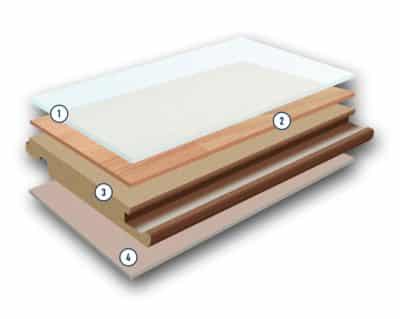
laminate flooring
The laminate flooring of the past was terrible, but today’s laminate is impressive. Rustic Wood Floor Supply believes that in a few years, laminate could become the best-selling flooring option in America. The latest style of laminate is incredibly scratch-resistant, visually appealing, and has a durable surface. The most fascinating aspect is that the new laminate is waterproof for almost a month, withstanding up to 500 hours of water exposure. The grain patterns are also deeply indented, giving it the appearance of natural wood and closely resembling engineered hardwood flooring.
Here are some pros and cons of engineered Prefinished flooring:
Pros:
- Affordability: Laminate flooring is generally more affordable than hardwood, ceramic, or other hard surface flooring options.
- Durability: Laminate flooring is highly scratch-resistant, making it a great choice for high-traffic areas and homes with pets or children.
- Ease of installation: Laminate flooring is relatively easy to install, making it a good option for DIY projects.
- Versatility: Laminate flooring comes in a wide range of styles and colors, so it is easy to find an option that matches your design preferences.
- Low maintenance: Laminate flooring is easy to clean and maintain, requiring only regular sweeping and occasional mopping.
Cons:
- Water damage: While the latest laminate flooring products are more water-resistant than older models, they can still be damaged by prolonged exposure to water.
- Limited lifespan: Laminate flooring may not last as long as hardwood, ceramic, or other high-end flooring options.
- Cannot be refinished: Laminate flooring cannot be sanded or refinished to repair damage or restore its appearance.
- Hollow sound: Some homeowners dislike the hollow, plastic-like sound that laminate flooring can produce underfoot.
- Environmental concerns: Laminate flooring may contain chemicals or materials that are not environmentally friendly.
Determining the Right Flooring for You
After considering the pros and cons of each flooring type, it’s time to determine which one suits your needs best. The following scenarios will help you narrow down the six different flooring types to two or three options that fit your requirements.
Wet Area
If you have a wet area, LVP/SPC flooring is the most suitable option. We recommend Urban and Cordalera brand flooring for SPC, which has a high stone content that can withstand any moisture-related challenges without moving.
Whole House Flooring
For whole-house flooring, wood is an excellent choice. It feels natural underfoot, looks fantastic, and can be changed if the trends change. We suggest going for solid prefinished or solid hardwood flooring so that you can sand the floor at a later date to modify its color and look.
Quick Option
If you’re looking for a quick option, prefinished solid, LVP, or laminate flooring will do the job. LVP and laminate are the fastest options, while prefinished solid takes slightly longer. With LVP and laminate, you can install them using a sharp knife since they require no nailing or complex tools. On the other hand, prefinished solid flooring needs a nail gun and saws.
Installation without Professional Assistance
For those who want to install flooring without professional assistance, prefinished solid, LVP, or laminate is the way to go. Solid hardwood and engineered unfinished hardwood require sanding tools and expertise to install and finish.
Customization
If customization is your top priority, solid hardwood is your best bet, both now and in the future. Although engineered hardwood offers plenty of customization options, you can’t change it later.
Super Dry or Wet Climates
For super dry or wet climates, solid hardwood is the ideal choice. It can acclimate to its surroundings, and since it’s solid, it won’t check, shear, or delaminate. Alternatively, you can consider LVP, which contains stone and is unlikely to move.
If you want to learn more about wood, LVP, laminates, and everything related to flooring, the best idea is to visit our store. Even though this may seem like an easy decision, it’s essential to get accurate information to avoid being misled. Whether you’re working with another store or a flooring installer, we’ll provide you with the right guidance at our Spokane or Boise store. At Rustic Wood Floor Supply, we’re committed to helping you make the best decision for your circumstances without any biases.
We sell all types of flooring and have extensive knowledge of their nuances. So, come to where the pros shop to learn and discover that hiring a pro can get you a better job done at the same price as other stores for inferior products.
Author Profile
- I have worked in hardwood flooring for the last 8 years. Use to run a company of residential crews as well as a company with gym flooring. If you need floor installation or refinishing help, I should have an answer or at least get you in the right direction.
Latest entries
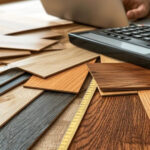 FlooringJanuary 15, 2026Does New Hardwood Flooring Increase Your Home Value?
FlooringJanuary 15, 2026Does New Hardwood Flooring Increase Your Home Value?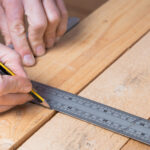 FlooringJanuary 14, 2026Can You Refinish Engineered Hardwood?
FlooringJanuary 14, 2026Can You Refinish Engineered Hardwood?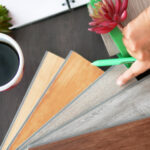 FlooringJanuary 10, 2026What Wood Floor Color Do I Choose?
FlooringJanuary 10, 2026What Wood Floor Color Do I Choose?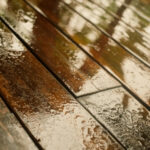 FlooringJanuary 9, 2026How To Prevent Hardwood Floor Moisture Problems?
FlooringJanuary 9, 2026How To Prevent Hardwood Floor Moisture Problems?

